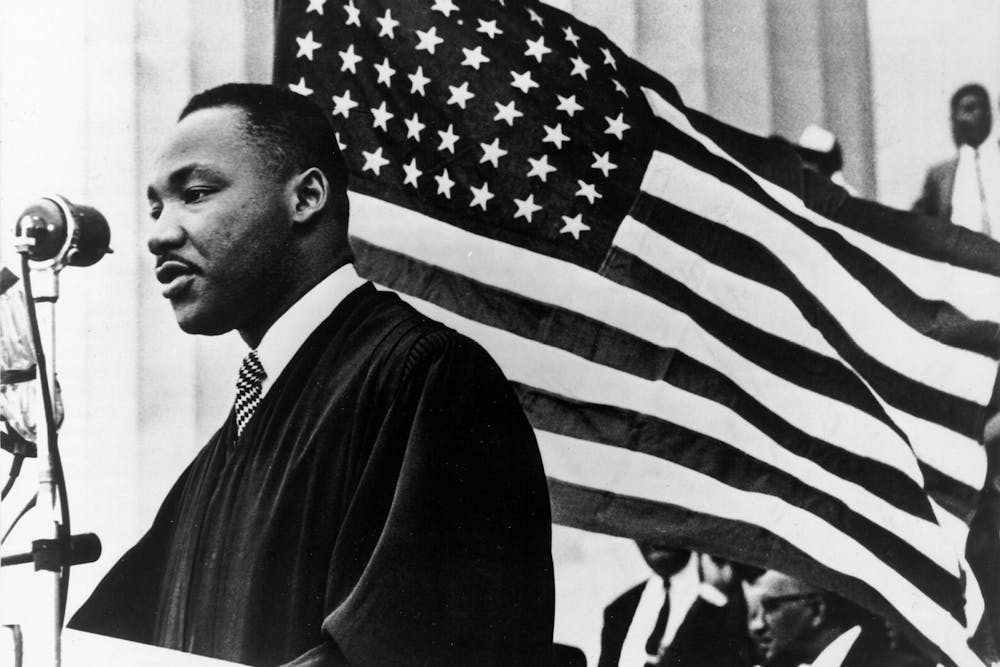In the 1960s, Martin Luther King Jr. was reviled. Even shortly before his murder, as many as 63% of Americans found him unfavorable. The FBI even went so far as to attempt to goad him to commit suicide with a now scandalous letter, as well as putting MLK under intense surveillance. Soon thereafter, he was assassinated.
Now, over 54 years later, he's lauded by the very country that wronged him so severely.
However, in their praise of the late reverend, they only cite a single line of a single speech: "I have a dream that my four little children will one day live in a nation where they will not be judged by the color of their skin but by the content of their character."
This powerful line in a monumental speech is repeated often and for good reason; it’s an ideal everyone should agree with and strive for. Yet, this ideal has been misconstrued and used to reduce a radical civil rights leader to a mere rhetorical tool often used by people MLK would've fought against.
Former President Donald Trump cited this line in a 2020 rally as an argument against critical race theory:
"Critical race theory is a Marxist doctrine that rejects the vision of Martin Luther King Jr, and all of our great forefathers, and instead forces people to judge each other based on race, skin color," he said.
In reality, MLK staunchly expressed his disdain for white moderates.
"I’m sorry to have to say that the vast majority of white Americans are racists, either consciously or unconsciously," King said in a 1967 speech.
This single line from the “I Have a Dream” speech is essentially used to argue for color blindness, the idea of"not judging based on race." It’s a good idea to have, but it’s often used to outright ignore the existence of race.
Sure, a perfect world, free of race, would be great! But when considering data that shows race affects COVID-19 survivability rates, health care, police brutality, incarceration rates, financial safety and much more, it's impossible to ignore race entirely. It's a reality we all live in and quoting MLK to disprove this is offensive.
I've heard the "content of their character" line used to justify so many different beliefs and values that it barely resembles the message MLK imparted before his tragic assassination It's been used by politicians to justify the banning of what legislators consider critical race theory in schools, to introduce new legislation like the Stop Woke Act, to counter the #BlackLivesMatter movement with the dreaded #AllLivesMatter.
The bastardization of MLK's message is abhorrent and condemnable, and it is something seen all too often. The unpopularity of his message hasn't left the American culture; his message was merely retooled and misshapen by those who would see his fight for civil rights as a threat.
He made no qualms about his stance on white moderates. He made enemies of government politicians. He even advocated for reparations and for Black Americans to have something akin to special treatment in his final book before his assassination, "Where Do We Go from Here? Chaos or Community?"
"A society that has done something special against the Negro for hundreds of years must now do something special for him, in order to equip him to compete on a just and equal basis," King said.
It's why these politicians and pundits use the same quote from the same speech over and over. In isolation, it provides a great way to act as if MLK was someone who didn't even think of race in his speeches. But in context, the late reverend's message and ideas would still be as unpopular today by the wide majority of Americans as they were back in 1968.






